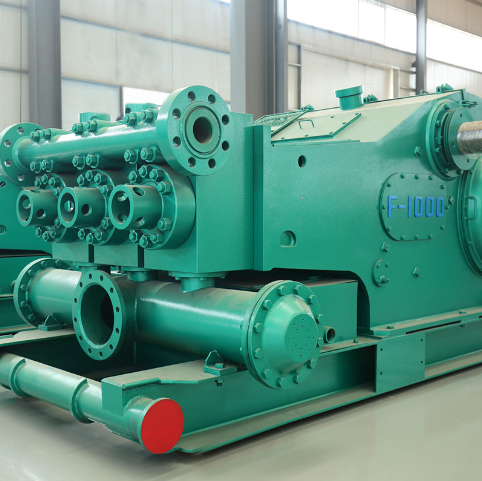Unparalleled Advantages of Mud Pumps in Oilfield Operations
In the dynamic landscape of the oil and gas industry, the efficient extraction of resources relies heavily on advanced technologies and robust equipment. Among the critical components that contribute to this efficiency, mud pumps stand out as indispensable tools in the oilfield. In this comprehensive guide, we delve into the intricacies of mud pump utilization, exploring their significance, functionalities, and the unparalleled advantages they bring to the oil extraction process.
Mud pumps play a pivotal role in drilling operations, facilitating the circulation of drilling fluid, commonly known as mud, within the wellbore. This serves a dual purpose of cooling and lubricating the drill bit, while also carrying the drilled cuttings to the surface. The fundamental importance of mud pumps lies in their ability to maintain wellbore stability, preventing potential hazards such as blowouts and ensuring a seamless drilling process.
Types of Mud Pumps: A Comprehensive Overview
1. Reciprocating Piston Pumps
Arguably the most common type, reciprocating piston pumps operate through the back-and-forth movement of pistons, generating the necessary pressure to propel mud through the drill string. Known for their reliability and durability, these pumps are the workhorses of the oilfield, with the ability to handle high-pressure environments with ease.
2. Centrifugal Pumps
In contrast, centrifugal pumps utilize a different mechanism, relying on the rotation of an impeller to create centrifugal force and propel mud outward. While not as prevalent as reciprocating piston pumps, they find their niche in scenarios where continuous, steady flow is crucial.
3. Progressing Cavity Pumps
Known for their versatility, progressing cavity pumps excel in handling varying viscosities of mud. Their helical rotor design ensures a smooth and consistent flow, making them invaluable in situations where drilling conditions are less predictable.
Unparalleled Advantages of Mud Pumps in Oilfield Operations
1. Enhanced Drilling Fluid Properties
Mud pumps contribute significantly to the optimization of drilling fluid properties. By ensuring a consistent circulation of mud, these pumps facilitate the removal of debris and contaminants, maintaining the integrity of the drilling fluid. This directly translates to improved drilling efficiency and reduced downtime.
2. Maintaining Wellbore Stability
One of the primary concerns in drilling operations is the stability of the wellbore. Mud pumps, through their continuous circulation, effectively prevent well collapse and formation damage. This not only safeguards the integrity of the well but also extends the lifespan of drilling equipment.
3. Minimizing Environmental Impact
Efficient mud circulation not only benefits the drilling process but also minimizes the environmental impact of drilling operations. By effectively managing and containing drilling mud, the risk of spills and contamination is significantly reduced, aligning with the industry's growing emphasis on environmental responsibility.
In conclusion, the utilization of mud pumps in the oil and gas industry is not merely a necessity but a strategic investment in operational excellence. From maintaining wellbore stability to optimizing drilling fluid properties, these pumps play a multifaceted role that directly influences the success of drilling operations. As technology continues to evolve, the integration of advanced mud pump systems will undoubtedly shape the future of oilfield efficiency.
Related suggestion:
Triplex Mud Pump, Triplex Piston Pump, Three-Cylinder Mud Pump, Triple-Action Mud Pump, Triplex Pump



评论
发表评论